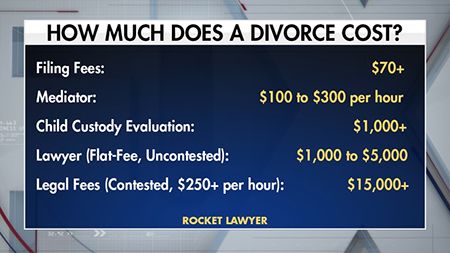
What Is the Difference Between Fault and No-Fault Divorce?
Whether it's adultery, lying, greed, or any other reason a spouse feels betrayed, there is typically someone at fault–the other spouse. But in most cases of divorce, the two individuals mutually agree that their marriage no longer works and are dissatisfied.
If you're in an unhappy marriage, you must learn how to properly file for divorce if that's what you decide to do.
This post will cover the differences between fault and no-fault divorce laws and how to file a no-fault divorce.
Since our law firm practices in Arkansas, this post will solely focus on divorce within the state.
What is Fault Divorce?
A fault-based divorce is when someone in the relationship did something that incurred a separation or dissolution of marriage.
Some examples of fault divorce causes are:
- Adultery
- Abandonment
- Extended time in prison
- Cruelty/abuse
- Insanity
- Inability to perform sexually if the suffering spouse didn't share news about the condition before marriage.
In a fault divorce, the victim needs to meet with a lawyer and establish their case. They need to produce evidence of the fault to convince the court that the other spouse is responsible for the divorce.
Fault divorces are messy and much more expensive than no-fault divorces, so the latter is much more common.
What is No-Fault Divorce?
No-fault divorce is when both people agree to dissolve their marriage.
There are a few reasons why a couple might come to this conclusion:
- Incompatibility
- Irreconcilable differences
- Unfixable breakdown of the marriage
While there might be a couple of reasons for no-fault marriage, it's because the marriage is failing at the end of the day.

Although you can file for fault divorce as soon as you find grounds for a claim, no-fault divorce law in Arkansas is slightly different.
How to File a No-Fault Divorce in Arkansas?
Filing a no-fault divorce in Arkansas is a task requiring patience and firm resolve. To file a no-fault divorce claim, you and your spouse must live separately for 18 months.
There is to be absolutely no cohabitation. You must have an affidavit or testimony for a witness who can verify that both people lived apart for the stated amount of time.
No-fault divorces are typically less expensive, and the divorce process goes much faster, even when child custody is involved. However, if a couple decides they don't want to wait 18 months for a no-fault divorce, they must file a fault divorce.
Conclusion
Divorce can be a mess sometimes, but you can save yourself time and money if you file for a no-fault divorce.
If you need legal representation and help to file a fault or no-fault divorce case, let Hickey and Hull Law Partners help you out. With years of experience, we can guide you along the way and give you the best advice to help settle your case as quickly as possible.

